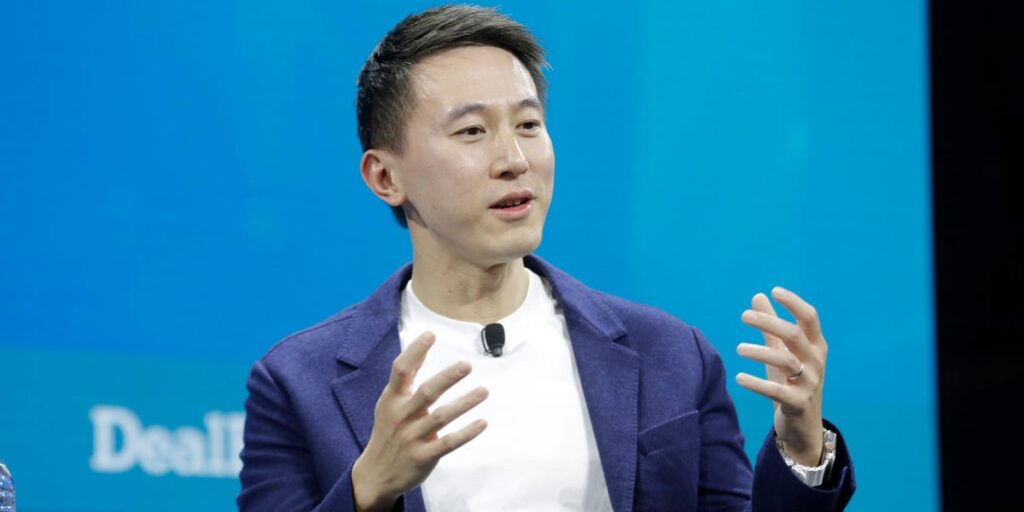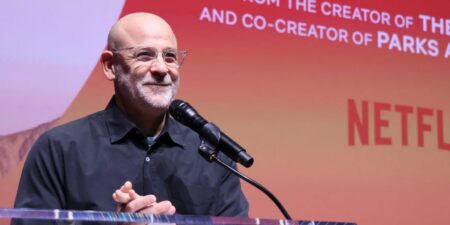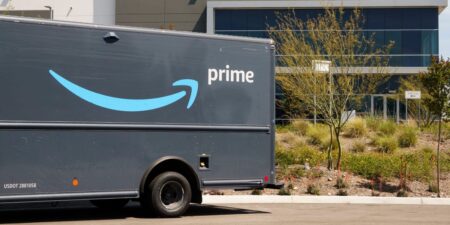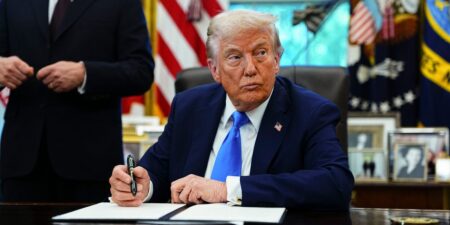President Donald Trump issued an executive order on Thursday giving his approval for a sale of TikTok’s US business to a buyer consortium.
Vice President JD Vance said Thursday that the deal would value TikTok US at “around $14 billion.”
The exact make-up of the new consortium has not yet been revealed. Trump said on Thursday that Oracle and Larry Ellison would be part of the deal, which would include “four or five world-class investors.”
“Oracle is playing a very big part,” Trump said on Thursday.
He added that Michael Dell and Rupert Murdoch would be involved in the deal.
Vance referred to the buyers as a “blue chip group of investors.”
After years of uncertainty about its US future due to a divestment law, TikTok can run its business without fear of a ban.
As part of the deal, US users will still be able to watch videos from creators in the rest of the world, and vice versa, White House spokesperson Karoline Leavitt said on Monday. Oracle will audit the US spin-off’s algorithm, which will be “retrained and operated in the United States outside of ByteDance’s control,” Leavitt said.
The US will not get an equity stake in TikTok, but the government does expect to receive a fee for facilitating the sale, the president said on Friday. The Chinese government has yet to announce final sign-off on a deal, but Trump said on Thursday that Chinese leader Xi Jinping “gave us the go-ahead.”
A variety of questions remain about what TikTok’s US business will look like after it is spun off.
Will advertising partners still be able to make global ad buys? What becomes of TikTok Shop, its e-commerce play? Do TikTok’s new owners want to make a long-term bet on social shopping, or will they focus more on short-term revenue?
Some US TikTok employees are worried that their new owners will deprioritize their team or division, or lay them off entirely, they told Business Insider.
“If it works out, great. If it doesn’t, we’ll have to look for another job,” one current staffer who works in TikTok’s e-commerce division said.
Another TikTok employee was curious what the sale would mean for their ByteDance stock after the deal goes through. They also wondered whether a “retrained” algorithm in the US would be as good as the current one that ByteDance oversees.
As TikTok prepares for its next phase in the US, it’s already laid the groundwork for managing its American audience separately.
Oracle currently works with TikTok’s US Data Security division, USDS for short, to store TikTok’s US user data and guard against potential data leakage.
How we got here
The TikTok sale is the result of a multi-year push from Congress and Presidents Donald Trump and Joe Biden to get ByteDance, a company with roots in China, to divest from TikTok’s US assets.
The effort came to a head last year when Congress passed a law that gave TikTok until January 19 to find a new owner or face a ban. ByteDance challenged the law in the Supreme Court and lost. The company briefly shut down its app in the US to comply with the law, but later restored service after then-President-elect Trump said he would sign an executive order directing his Justice Department to pause its enforcement. He did so when he took office and has repeatedly delayed the TikTok ban amid negotiations.
Trump earlier proposed a deal that would give the US partial ownership of TikTok, a structure that legal analysts said could spark First Amendment challenges. Various potential bidders for TikTok emerged, including AI company Perplexity and an investor group led by former Los Angeles Dodgers owner Frank McCourt.
For years, state and federal politicians have raised concerns about TikTok. The US government views China as a foreign adversary, and some officials worry TikTok could be forced to hand over US user data to the Chinese Communist Party or act as a CCP propaganda tool.
TikTok has previously said that it does not share information with the Chinese government and that its content-moderation efforts are run by a US-based team that “operates independently from China.”
For some US TikTok employees who have endured years of political threats, this week’s deal news brings “clarity and hopefully stability,” the first TikTok staffer said.
The employee said they still had many questions, but it’s “better than the endless uncertainty.”
Have a tip? Contact this reporter via email at [email protected] or Signal at @danwhateley.94. Use a personal email address, a nonwork WiFi network, and a nonwork device; here’s our guide to sharing information securely.
Read the full article here















